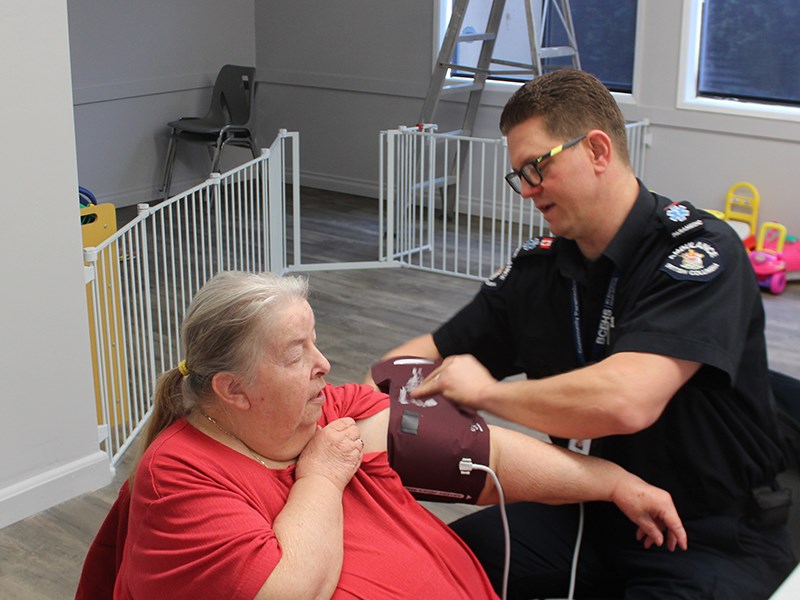A program that works to improve access to health care in rural communities and provide stable employment for ambulance paramedics arrived in Powell River last year.
“The Community Paramedicine program is about three years old in BC now,” said Brian Bomprezzi, Powell River’s first community paramedic. “There are 109 of us throughout the province.”
Members of the Ambulance Paramedics of BC (CUPE 873)came up with the novel way of creating steady work for ambulance paramedics in remote communities while improving access to medical care, and together with BC Emergency Health Services, BC Ministry of Health, regional health authorities and others the project was launched in nine remote areas in 2015. Today it reaches 99 communities around the province.
“We have a four-pillar approach to health care,” said Bomprezzi. “The first pillar is working with seniors in the home who have a chronic health condition and could benefit from more one on one time.”
Benefits of this include allowing seniors to age in place and keeping families together as well as improving health outcomes. The second tier includes providing education to school and community groups, such as handwashing clinics, hands-only CPR and automated external defibrillator (AED) awareness.
The third component is providing wellness clinics.
“Every Wednesday I’m at the Salvation Army between 12 and 1:30 pm, and the seniors lunch the third Thursday of every month at the [Powell River] Recreation Complex,” added Bomprezzi. “Anybody can come in and get their blood pressure, oxygen saturation, pulse rate and blood sugars checked, and they can ask questions. If people don’t have a family doctor and they’re wondering how they’re doing health wise, they can come in and get that quick once-over. If something is caught medically I can refer them.”
For residents such as Carol Daniels, who regularly attends community outreach events, the chance to talk to someone knowledgeable is valuable.
“I appreciate it because if I have any questions or need help I have somebody medical to come talk to about about it,” she said.
The fourth component is supporting existing health-care teams in the community. This can include providing first response in the event that other emergency personnel were already dispatched.
“If all the other ambulances were busy and there was a code-three call that came in, dispatch can send me on the call by myself to start providing treatment until the ambulances are free to come and take over and transport the patient to hospital,” said Bomprezzi.
After more than a decade of working on the frontlines of emergency care in Powell River, Bomprezzi said he finds the community paramedic role extremely rewarding.
“It’s really nice to be doing preventative medicine rather than reactive care,” he said. “It’s really been beneficial to get to work with people and see them progress and get better rather than just showing up to pick them up and take them to the hospital.”
Currently, referrals to the home visit portion of the program typically last three to six month.
“The hardest part is when the referral ends,” said Bomprezzi, “because these people become my friends and I become their friend and they look forward to me coming in every week.”



